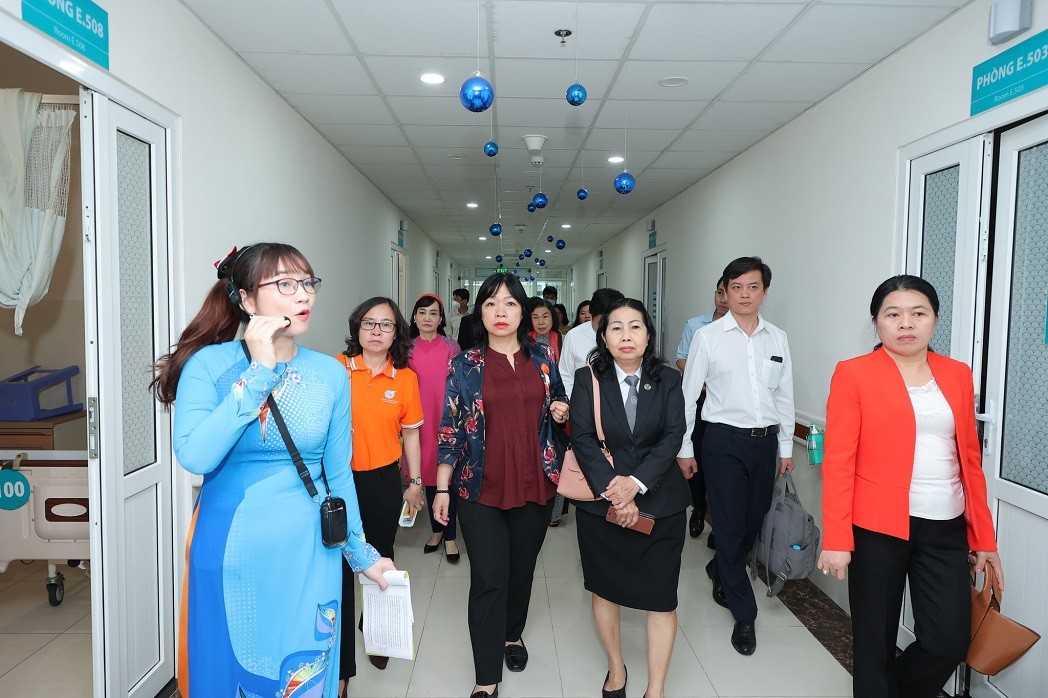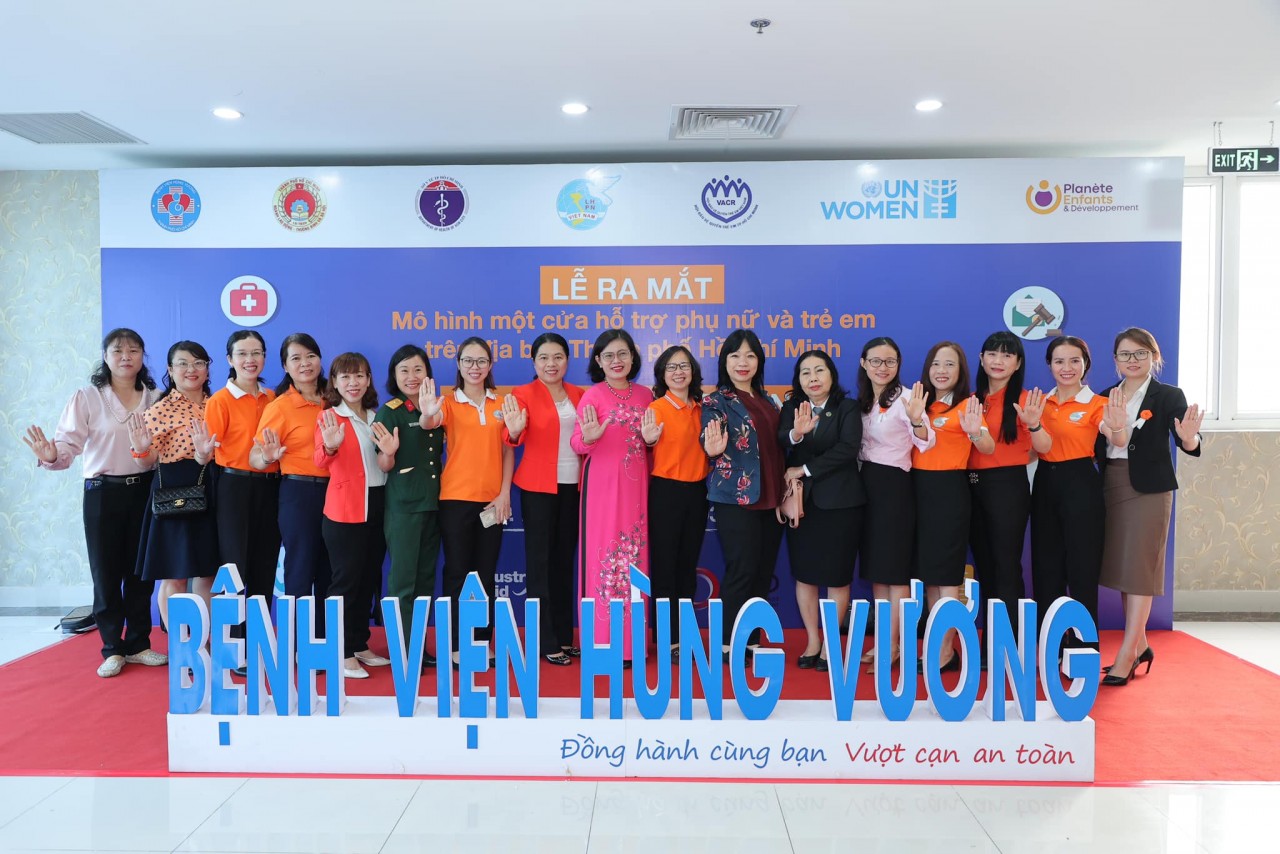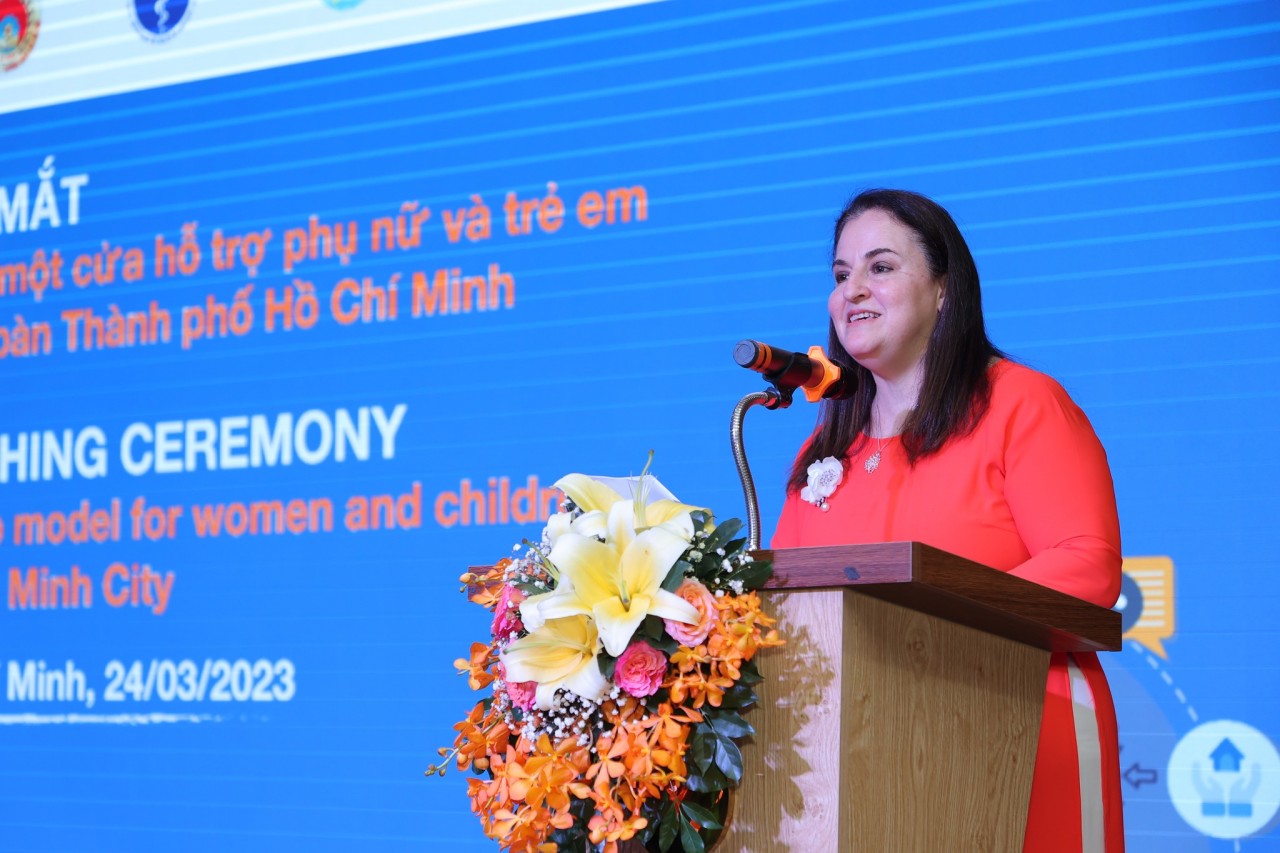The first one-stop model to support women and children experiencing violence in Ho Chi Minh City was officially launched at Hung Vuong Hospital, 128 Hong Bang, Ward 12, District 5.
Instead of having to knock on the doors of many places to seek support, women and children subject to violence simply go to the “one-stop-shop” model for medical care, psychological and legal counseling.
 |
| The delegates visit the one-stop model to support women and children experiencing violence in Ho Chi Minh City. Photo: UN Women Vietnam |
The model, the first of its kind, will be piloted from now to 2026, according to VNA.
It will perform its functions of receiving, screening, treating, consulting, and providing on-site services to patients who are women and children subject to violence and sexual abuse.
If an emergency shelter is needed, social workers of Hung Vuong Hospital will refer victims to the City Centre for Social Work – Education and Vocational Training for Youth, located at 14 Nguyen Van Bao street, Ward 4, Go Vap district, for care and nurture, therapeutic intervention and access to other essential services on demand.
 |
| From now on, women and children experiencing violence in Ho Chi Minh City can access essential support services in one location. Photo: UN Women Vietnam |
Speaking at the launching ceremony, Le Van Thinh, director of the municipal Department of Labour, Invalids and Social Affairs, said that the pilot implementation of the one-stop model at a health facility is an unprecedented solution in Vietnam.
Experience in responding to gender-based violence shows that health facilities are often the first places to which patients of different age groups, professions and backgrounds go to.
The one-stop shop model is a safe destination, a place to intervene, help, and provide essential closed and suitable service packages for each victim in the area, added Thinh.
The National Survey on Violence against Women in Vietnam in 2019 shows that nearly two out of three women (nearly 63%) experience one or more forms of physical, sexual, emotional, and economic violence as well as controlling behaviours caused by their husbands or intimate partners in their lifetime.
However, 90% of the women who experience sexual and/or physical violence perpetrated by their husbands do not seek any assistance from the authorities. Therefore, violence against women is very much hidden in Vietnamese society.
 |
| Elisa Fernandez Saenz, UN Women Representative in Vietnam. Photo: UN Women Vietnam |
Elisa Fernandez Saenz, UN Women representative in Vietnam, said that the launch of the model is a result of the tireless efforts of stakeholders in HCM City during the past few years, aiming to provide a coordinated multi-sectoral essential service for women and children subject to violence by meeting their aspirations and needs.
UN Women is committed to continuing to join hands with the city in the coming time to make the model pilot a success, she said, expecting this model to serve as a basis for its duplication nationwide.
In 2022, two One Stop Service Centres (OSSCs) were officially launched in HCM City and Da Nang City to provide integrated and essential services supporting survivors of gender-based and domestic violence.
With financial contribution from the Government of Japan, the United Nations Population Fund (UNFPA) Vietnam contracted the Centre for Studies and Applied Sciences in Gender – Family – Women and Adolescents (CSAGA) to establish the OSSCs called “Anh Duong (Sunshine) House”, to detect and prevent violence and support survivors via the hotline 02433335599 operating 24 hours a day.
The first OSSC model was opened in Quang Ninh province in April 2020 by the Ministry of Labour, Invalids and Social Affairs (MOLISA) with technical and financial support from UNFPA in partnership with the Korea International Cooperation Agency (KOICA).
Earlier 2022, MOLISA also opened one in Thanh Hoa province with support from UNFPA in partnership with the Government of Japan.
The two new OSSCs in HCM City and Da Nang are an attempt to try out a new model by CSAGA, while the earlier two are based on the social protection centres under MOLISA.
Those who are from other neighbouring provinces and cities can also receive services from the centres.








